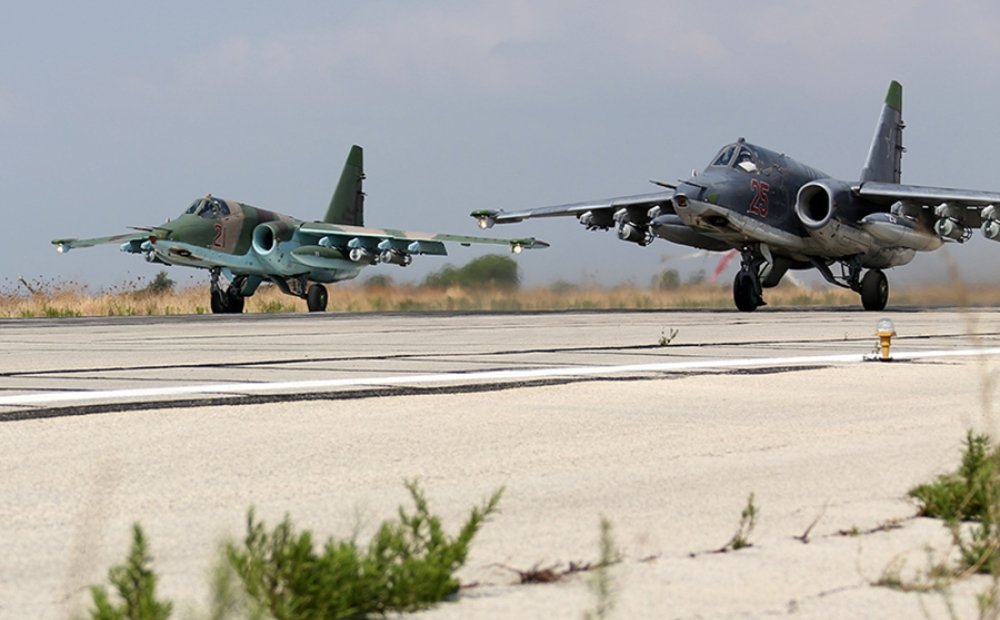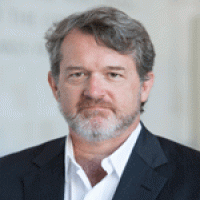Syria Conflict: Russia Intensifies Air Strikes

Russia’s military moves in Syria have added a new layer of complexity to the ongoing Syrian civil war and struggle against the Islamic State. What is motivating Vladimir Putin in Syria; what is the reaction in Russia; how should the U.S. respond, and is there a possibility of Russian-American cooperation in a political process that might create a basis for a more stable Syria? Three veteran analysts addressed the new situation created by Russia’s intervention.
The Takeaways:
- The West’s attempts at turning Russia into a global pariah have failed. With Russia’s entrance into the Syrian conflict, President Vladimir Putin is once again front and center on the global stage and Western leaders are having to deal with him.
- Russia’s military involvement gives it direct influence over the conduct of the Syrian war. Its aim is to weaken the opposition, restore the regime’s positions, and establish Russia’s presence in the Mediterranean.
- Russia’s involvement has put it squarely in the midst of a sectarian conflict which until now it only watched from afar. Russia has already drawn condemnation from Turkey and Saudi Arabia and risks being seen as part of an anti-Sunni coalition. Over time, its forces will become vulnerable to losses and possibility of a protracted involvement.
Despite being the target of Western sanctions and scorn, Russia has once again managed to assert itself on the world stage. Through quick and calculated coordination with Syria, Iran and Iraq, Russia has been able to establish a military presence in Syria that undermines NATO’s own efforts and is effectively changing the strategic calculus throughout the Middle East and around the world.
Russia’s rapid deployment to Syria seemingly caught Western leaders by surprise. However, Mr. Trudolyubov, speaking from Moscow, noted that Russia had started signaling a potential new military campaign already a month ago via state-run TV channels. For the past month, Mr. Trudoylubov said, “Ukraine disappeared from television,” and coverage of the Syrian war took its place. He said that the Kremlin has become highly adept at conducting its domestic politics through media, and by providing constant, in-depth coverage of the conflict President Putin is trying to inundate the Russian public with the suggestion that intervening in Syria is good for Russia. This is similar to the situation prior to the annexation of Crimea. However, unlike the conflict in Ukraine, the Russian public has virtually no historical or cultural ties to Syria. Further, many Russians still remember the Soviet Union’s invasion of Afghanistan, and many are wary of being drawn into another protracted conflict. In Mr. Trudolyubov’s view, Putin has plunged Russia into a sectarian conflict, and Russia is not making any friends in the Sunni world. In Mr. Trudoylubov’s opinion, one of Putin’s motivations may be trying to prevent another Libya scenario and assert his values of sanctity of state, inviolability of the incumbent, and intolerance of regime changes. However, his interests in this are clearly diverging with the interests of the country. “The questioning has already started inside Russia,” said Mr. Trudolyubov.
In his remarks, Mr. White stated that Russia has a well-conceived military strategy whose objective is to permit the regime to stay in power. He observed that Russia’s forces in Syria are small in number and focused on “executing selective and prioritized operations.” However, in his view, Russia has “put in a capable force which can do a lot,” including support special force operations. Mr. White believes that Russia has set the objective of allowing Assad to regain control of Western Syria’s economic centers, reduce the operational capacity of Al Nusra, the FSA and ISIS, and establish Russia’s presence in the Mediterranean. Russia’s recent cruise missile strike from the Caspian Sea only underscores the diverse and effective ways in which Russia can support Assad and undermine the West without actually committing significant manpower to Syria. At the same time, the deeper Russia gets involved in Syria, the more it will become vulnerable to loss of manpower and equipment, as well as mission creep.
With this recent display of effective and varied Russian military capabilities, Mr. Cullison believes, Putin is successfully rebuffing Western attempts to ostracize Russia. Despite levying sanctions against Russia and removing it from the G8, Mr. Cullison noted, Western leaders are, once again, “having to talk with [Putin].” In turn, Mr. Cullison believes, Putin will use Russia’s involvement in Syria as an opportunity to widen the conversation. However, while Russia’s actions may in the near term help solidify domestic stability and international recognition, Mr. Cullison cautioned that things could quickly turn for the worse. Primarily, Russia now risks being seen as part of the “anti-Sunni coalition” in the Middle East. Already, Russian actions in Syria have drawn condemnation from Turkey and Saudi Arabia. Should rhetoric and violence continue to escalate, and Russian soldiers become a primary target of rebel attacks, Mr. Cullison says, it’s unclear “that Putin would be able to step back” from the conflict. Should things escalate, Russia would be in “real danger” of becoming trapped in a prolonged, multi-faceted conflict.
The image is from The Ministry of Defense of the the Russian Federation as found on Wikimedia Commons.
Speakers


Editor-at-Large, Meduza

Correspondent, Wall Street Journal

Hosted By

Kennan Institute
After more than 50 years as a vital part of the Wilson Center legacy, the Kennan Institute has become an independent think tank. You can find the current website for the Kennan Institute at kennaninstitute.org. Please look for future announcements about partnership activities between the Wilson Center and the Kennan Institute at Wilson Center Press Room. The Kennan Institute is the premier US center for advanced research on Eurasia and the oldest and largest regional program at the Woodrow Wilson International Center for Scholars. The Kennan Institute is committed to improving American understanding of Russia, Ukraine, Central Asia, the South Caucasus, and the surrounding region through research and exchange. Read more


Middle East Program
The Wilson Center’s Middle East Program serves as a crucial resource for the policymaking community and beyond, providing analyses and research that helps inform US foreign policymaking, stimulates public debate, and expands knowledge about issues in the wider Middle East and North Africa (MENA) region. Read more
